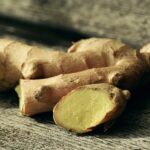In recent years, the spotlight on gut health has intensified, revealing its critical role in overall wellness. Media’s emphasis on gut health as a panacea for everything from skin clarity to longevity reflects a growing recognition of the gut microbiome’s pivotal role in overall wellness. This focus is both enlightening and problematic.
On the positive side, it highlights the importance of nutrition and gut health, encouraging individuals to adopt healthier lifestyles and diets that can lead to significant improvements in various aspects of health, the oversimplification often seen in media coverage can mislead the public into thinking that gut health is a magic bullet for all ailments.
It’s important to understand who are the key players behind maintaining a healthy gut and how it is not as simple as it seems. This article explores the balance between gut health and how to supplements to support it.
Understanding the Microbiome
So for a layman to ask what is microbiome? Our gut microbiome is a complex and dynamic entity which is composed of trillions of bacteria, viruses, fungi, and other microorganisms. These microbes and supplements containing microbes play a crucial role in digesting food, synthesizing vitamins, help with colon cleanse, and protecting against pathogens. The diversity and balance of this microbial community are essential for digestive health, metabolic processes, and immune response.
The key players for a balanced microbiome in our gut are a diverse array of microorganisms that work in harmony to support our overall health. These include:
- Bacteria: The most prominent members of the gut microbiome, beneficial bacteria play critical roles in digestion, nutrient absorption, and the synthesis of vitamins such as Vitamin K and certain B vitamins. They also protect against pathogenic bacteria. Key genera include Lactobacillus, Bifidobacterium, and Faecalibacterium, among others.
- Archaea: These are similar to bacteria but genetically distinct. Some archaea in the gut, like Methanobrevibacter smithii, help in breaking down and fermenting dietary polysaccharides, aiding in more efficient digestion.
- Fungi: The gut mycobiome, though less studied, includes various yeasts and molds that can have both beneficial and harmful effects on human health. Candida, in small amounts, is part of a healthy microbiome, but overgrowth can lead to issues.
- Viruses: Bacteriophages (viruses that infect bacteria) are abundant in the gut and play a role in regulating bacterial populations, thereby influencing the gut microbiome’s composition and diversity.
- Protozoa: These microorganisms can affect the balance of the gut microbiome. While some are pathogenic, others live symbiotically with the host.
Supplements for a Healthy Gut
While a balanced diet is foundational for gut health, supplements can also play a crucial role in supporting and enhancing the microbiome. Here are some key supplements considered beneficial for gut health:
- Dietary Fibers: Serve as prebiotics, feeding beneficial gut bacteria and promoting their growth and activity. Foods rich in fibers like fruits, vegetables, and whole grains are vital for a healthy microbiome.
- Probiotics: Probiotics are live microorganisms that, when administered in adequate amounts, confer a health benefit on the host. They can help restore the natural balance of gut bacteria, especially after disruptions such as antibiotic use. Common probiotic strains include Lactobacillus and Bifidobacterium. Examples include yogurt with live active cultures, kefir, a fermented milk drink, sauerkraut, kimchi, miso, tempeh, and certain cheeses.
- Prebiotics: Prebiotics are non-digestible food components that promote the growth of beneficial microorganisms in the intestines. They essentially act as food for probiotics. Examples include inulin, fructooligosaccharides (FOS), and galactooligosaccharides (GOS). High prebiotic foods include chicory root, garlic, onions, leeks, asparagus, bananas, barley, oats, apples, and flaxseeds.
- Polyphenols: Found in high amounts in foods like berries, nuts, green tea, and dark chocolate, polyphenols can promote the growth of beneficial bacteria while inhibiting harmful ones. Foods rich in polyphenols include fruits like berries, apples, and grapes; vegetables such as onions and spinach; nuts and seeds; as well as beverages like green tea, coffee, and red wine.
- Short-Chain Fatty Acids (SCFAs): Produced by the fermentation of dietary fibers by gut bacteria, SCFAs such as butyrate, acetate, and propionate serve as energy sources for gut cells, reduce inflammation, and help maintain the integrity of the gut barrier.
While a balanced diet is foundational for gut health, supplements can also play a crucial role in supporting and enhancing the microbiome. Here are some key supplements considered beneficial for gut health:
- Fiber Supplements: A high-fiber diet is crucial for gut health, aiding in digestion and the prevention of constipation. Fiber supplements like psyllium husk can support those not getting enough fiber from their diet, promoting regularity and a healthy microbiome.
- Collagen Peptides: Emerging research suggests that collagen supplements may benefit gut health by supporting the integrity of the gut lining, although more research is needed in this area.
- Omega-3 Fatty Acids: Omega-3 fatty acids, found in fish oil supplements, may reduce inflammation in the body, including the gut, and support a healthy microbiome composition. Some research suggests that omega-3 fatty acids can influence the microbiome composition by promoting the growth of beneficial bacteria and reducing the abundance of pathogenic bacteria. This balance can support gut health, enhance intestinal barrier function, and possibly contribute to the prevention of gut inflammation and related diseases.
When considering supplements for gut health, it’s important to choose high-quality products and consult with a healthcare provider, especially for individuals with existing health conditions or those taking other medications.
Conclusion
Maintaining a healthy gut microbiome is essential for overall health and well-being. A balanced diet rich in prebiotics, probiotics, and fibers lays the foundation for a thriving gut ecosystem. Supplements can serve as valuable allies in this quest, offering targeted support to nurture and sustain a balanced microbiome. By prioritizing gut health through both dietary supplementation, we can support our body’s natural defenses, digestive processes, and even mental health.
Want to unlock greater wellness?
Listen to our friends over at the Wellness + Wisdom Podcast to unlock your best self with Drew Canole of Organifi:








 Want To Build Unshakable Self-Assurance? Must Explore These Tips
Want To Build Unshakable Self-Assurance? Must Explore These Tips